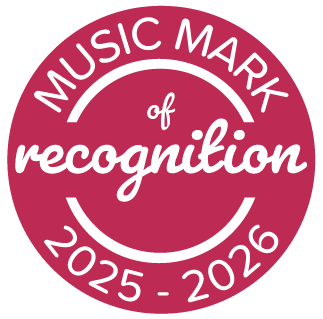English
Intent
At West Ashton, English and the teaching of English is the foundation of our whole curriculum. We plan and deliver high quality lessons to ensure that all children can reach their full potential and become primary literate. Our aim is to ensure every child develops a strong understanding of the spoken and written word and is given the opportunity to develop their love of literature through the many reading for pleasure opportunities that are provided for them.
We ensure all children progress in speaking and listening, reading and writing. We have high expectations and ambition for all our children, we recognise that each child has a different starting point in each year group on their journey, and therefore celebrate their effort and individual progress, as well as attainment, to ensure every child can celebrate success.
We ensure that at the beginning of their journey children are encouraged to speak in full sentences and by the end of their time in EYFS are able to sit and listen attentively and follow instructions as well as communicate clearly with other children and adults. Our use of high-quality texts, vocabulary-rich learning environments and a varied and engaging curriculum ensure the English progression of skills are met whilst developing a love of reading, creative writing and purposeful speaking and listening.
Implementation
The school uses the 2014 National Curriculum and the 2021 EYFS Curriculum for directing the teaching of English. At West Ashton we have invested in the Little Wandle phonics package which delivers a structured synthetic programme to those children in EYFS, Year 1 and Year 2. All our staff are trained in delivering this program and encouraged to keep up-to-date with additions to the Little Wandle website. The reading books are then matched to the sounds the children are learning.
Please see the Phonics and Early Reading tab for further information.
All children have group reading sessions throughout the week using age related texts. These sessions will focus on vocabulary, to ensure they are exposed to a wide variety of words to increase their understanding and breadth of the vocabulary. As their journey continues they develop their skills in inference and punctuation and grammar. Please see the Reading tab for further details.
As a school, we have planned a robust, creative and engaging curriculum to deliver the National Curriculum writing objectives and ensure that each piece is purposeful and shows clear progression for all the children. Our writing tasks are topic based, cross-curricular and can often be found in our foundation subject knowledge organisers.
To ensure accurate assessment we regularly assess independent writing as a whole staff.
Teachers have high expectations through teaching to the appropriate yearly objectives and set work appropriate to the needs of the children in their class. The structure of the lessons are carefully considered, including opportunities for returning to, and expanding on prior knowledge, teaching, modelling and discussion to aid understanding and support children in their independent tasks.
We use a spelling scheme to ensure coverage of all of the spelling objectives. Please see the Spelling tab for more information.
Impact
The impact on our children is clear: progress, sustained learning and transferrable skills which will be seen across the whole curriculum.
By the end of Key Stage Two the children are very familiar with a variety of different genres and creativity with accurate grammar and punctuation skills can become the primary focus.
We aim for children to leave West Ashton with a love of reading and writing and high aspirations to continue this love of language into the next phase of their academic journey.
The National Curriculum for English aims to ensure that all pupils:
- Read easily, fluently and with good understanding.
- Develop the habit of reading widely and often, for both pleasure and information.
- Acquire a wide vocabulary, an understanding of grammar and knowledge of linguistic conventions for reading, writing and spoken language.
- Write clearly, accurately and coherently, adapting their language and style in and for a range of contexts, purposes and audiences.
- Use discussion in order to learn; they should be able to elaborate and explain clearly their understanding and ideas.
- Are competent in the arts of speaking and listening, making formal presentations, demonstrating to others and participating in debate.
Downloads
| Curriculum - English |
|---|
| English policy |
| Reading at a glance |
| Writing at a glance |





